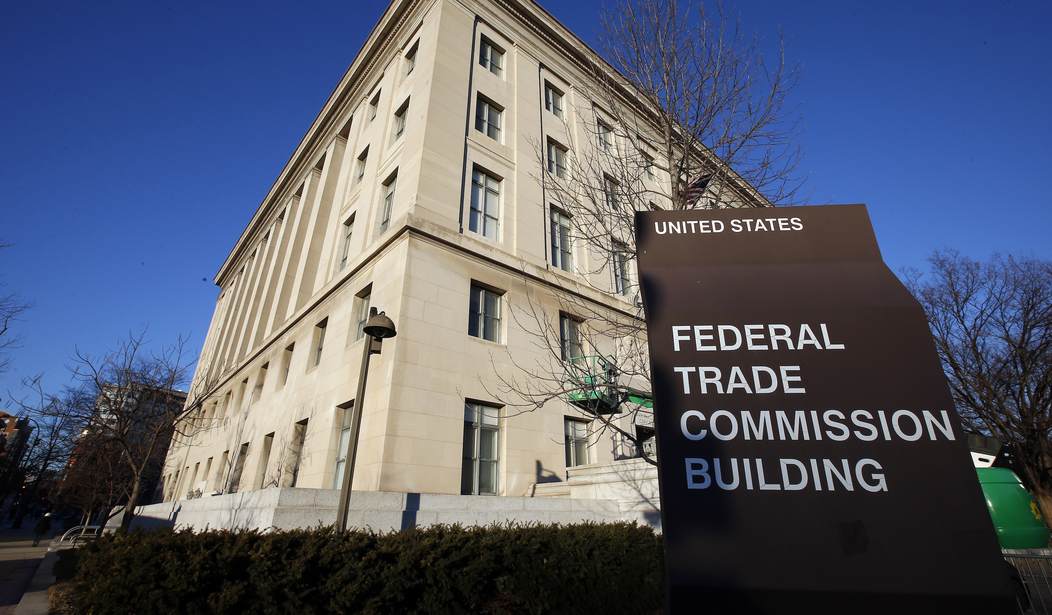Ironically, it seems that the U.S. government entity that is supposed to protect consumers’ welfare by keeping monopolies at bay, the Federal Trade Commission (FTC), is itself engaging in harmful collusion. Additionally troubling, new FTC and Department of Justice (DOJ) proposed guidelines will make it a real challenge — virtually impossible perhaps — for American corporations to engage in mergers and acquisitions altogether. These two changes will make American corporations less competitive, and this is being done by design.
Progressive bureaucrats are going to do irreparable harm to our economy if cooler heads in the Biden Administration don’t stop the apparent cabal of liberal ideologues running amok at these and other agencies. In the (likely) event they don’t put the brakes on the FTC, Congress should haul in FTC leadership to make them justify radical de facto changes underway with regard to antitrust law.
Many are concerned that the latest problem with the FTC lies in a recently-disclosed effort to collude with European Union (EU) officials to make life even more difficult for American corporations. The Daily Mail reported in late August, “Republican Sen. Ted Cruz is concerned that the Federal Trade Commission is abusing taxpayer dollars by working closely with the EU and other foreign lawmakers to stifle business competition.”
Cruz wrote a letter to FTC Chair Lina Chan demanding “information regarding the agency’s use of taxpayer resources to ‘directly coordinate with foreign lawmakers to create new regulations in overseas jurisdictions that target American businesses.’” Cruz is correct to point out that colluding with foreign governments violates both the sovereignty of the United States and infringes on Congress’s domain in making law.
A second problem emerging is collusion between the FTC and DOJ to roll out proposed new guidelines on mergers and acquisitions designed to slow walk and prevent them from ever happening. As Veronique de Rugy wrote recently in Reason, “last month, the Department of Justice (DOJ) and Federal Trade Commission (FTC) published a draft of proposed new guidelines for mergers and acquisitions” that “will preemptively block private sector corporate transactions with little regard for the actual impact on consumers.” This would end up changing the current antitrust standard from a check on potential harmful impact on consumers to one that is purposely drafted in an ambiguous manner to allow leftist government bureaucrats to tinker with free market forces.
The new proposed guidelines number thirteen and create a mishmash of analysis that virtually makes certain that the FTC can block any merger or acquisition basically because they feel like it. One guideline creates the standard that “mergers should not significantly increase concentration in highly concentrated markets.”
Vertical integration can make a company more efficient, even though it will create more concentration. These efficiencies may lead to lower prices for consumers, yet the guidelines seem to ignore potential consumer benefit. Another guideline sets a standard that a merger “should not eliminate substantial competition between firms.” That sweeping standard could theoretically be used as a reason to oppose any merger at all.
Finally (and obviously) the Biden-era FTC is driven by an ideological chair who is committed to transforming the agency into a far more powerful and activist regulator. The progressive anti-corporate ideology of Lina Khan is well documented. The New York Times reported in June of 2021, “one of Lina Khan’s first projects as a new staff member at an antitrust think tank in 2011 was researching the history of the market for books, which had increasingly been dominated by Amazon. It was an early, unpublished entry in a body of work that has since established her as a major critic of the tech giants and corporate concentration.”
Since then, Khan has been recognized as a leading critic of America’s most successful companies like, “Google, Facebook, Apple, and Amazon.” Khan has a “big is bad” attitude towards corporations that has led her to change policy at the FTC to harass, regulate, and block efforts by these companies to grow and become more efficient.
Of course, mergers and acquisitions must be appropriately scrutinized and legitimately bad ones blocked. But many are, in fact, good, and big corporations by definition are not bad, as I have written in this space before. If the opponents of free market capitalism like those running the show at the FTC nowadays aren’t checked from using government power to transform the United States economy into a European socialist model (and even working with them to do so), we’ll get nothing but the same kind of stagnation they are experiencing across the pond. And then some.










Join the conversation as a VIP Member